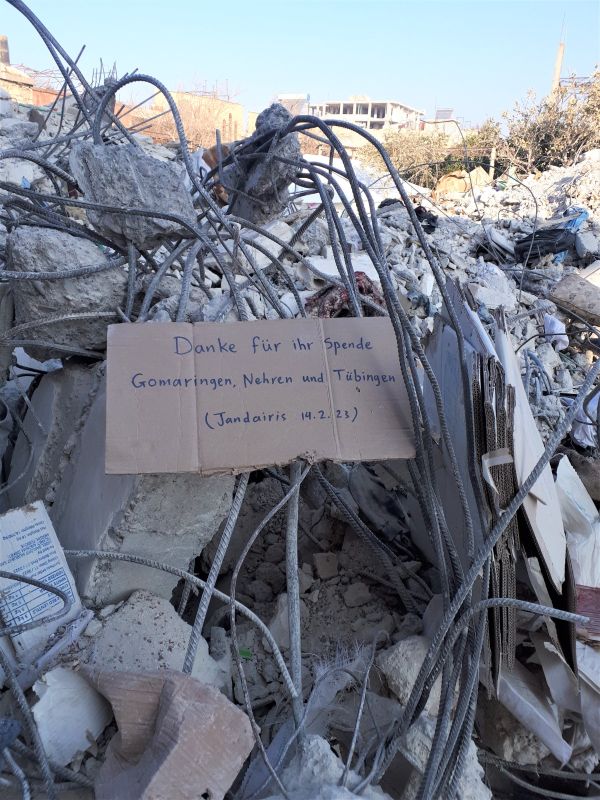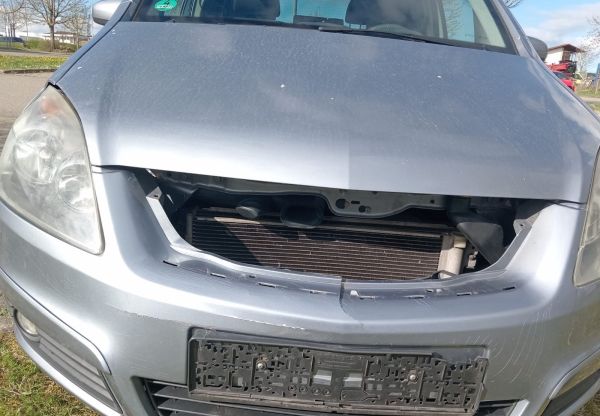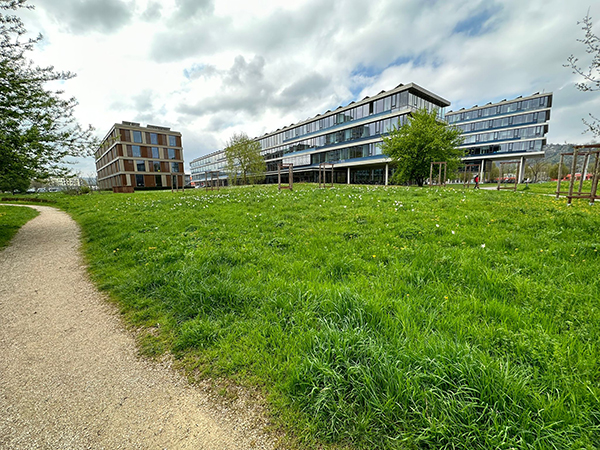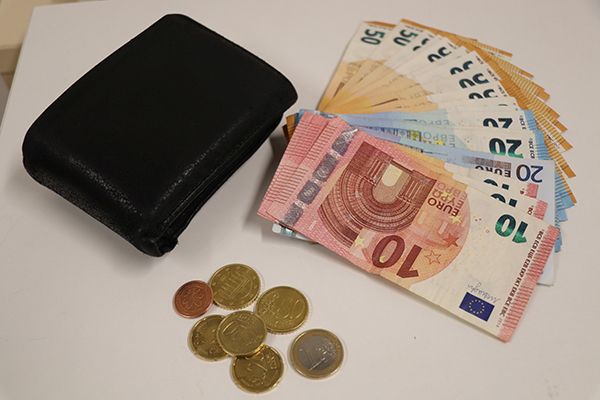Von Brigitte Gisel
Earthquake victims in northern Syria are still receiving hardly any outside help. TüNEWS editor Youssef Kanjou organizes support on his own initiative.
“We are collecting money for northern Syria because of the earthquake. Because people are not getting enough aid and they don’t have enough food.” The appeal reads breathless, desperate—and that’s the situation. “They are doing very badly,” Dr. Youssef Kanjou says of his mother, brother and family and cousins who live in Jenderes in northwestern Syria near the border with Turkey. “They lost everything,” says the former director of the National Museum of Aleppo, who has lived near Tübingen, Germany, since 2016 and works at the Institute for Ancient Near Eastern Cultures at the University. After his brother told him by phone days after the quake how people were suffering, he decided to support the people in Jenderes with his own fundraising campaign. “In one family, only one little boy survived,” the archaeologist knows. He needs support to continue going to school, he says.
“They all need warm blankets and food,” Kanjou says, adding that the first two days there was nothing to buy, but now the situation is better. “But the children are sick because it is so cold,” he says of phone conversations with his brother. Relief supplies for people in northern Syria have so far arrived as little as technical equipment to recover buried and dead bodies, he said. “People are helping each other.” Only individual NGOs have come to support earthquake victims, he said.
Kanjou has already collected more than 7,000 euros via Paypal. The money will be transferred to northern Syria via Turkey. Kanjou is overwhelmed by the willingness to help. Syrian refugees, people from the Steinlach Valley and his scientific colleagues from Japan, Australia and Germany: many want to contribute. “This motivates me to continue,” says Kanjou.
Before the earthquake, 56,000 people lived in Jenderes. Before the war, there were 18,000. Today, 6,000 people remain in the city. More than 1,100 men, women and children died in the earthquake. The others have left the city. The city is located in northwestern Syria and is not under the influence of the regime of ruler Bashar al-Assad, but under Turkish protection, Kanjou says. That is why there is no support from the official Syrian government. Above all, the new houses have collapsed, he says. When the big wave of refugees from the Assad-controlled part of Syria started, the place grew very fast. There were not only camps, but just new houses: built quickly, built illegal, without proper foundations. They have now collapsed in the great earthquake. With fatal consequences: In the family of one of Kanjou’s cousins, only two of seven children survived.
Kanjou, an archaeologist, is in close contact with his colleagues in Aleppo. They tell him that the earthquake caused severe damage—including to the World Heritage Site. Although there was help—especially from the Arab world—the situation of the people is still desperate “They were poor before, now they have nothing.”
https://shorturl.at/noQ35
tun23022001
Spendenaufruf für Erdbeben in Nordsyrien. Foto: tünews INTERNATIONAL / Youssef Kanjou
001904




